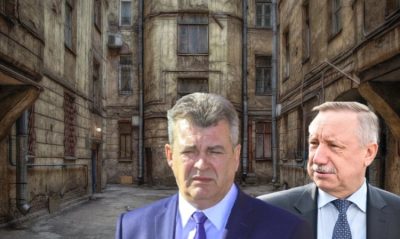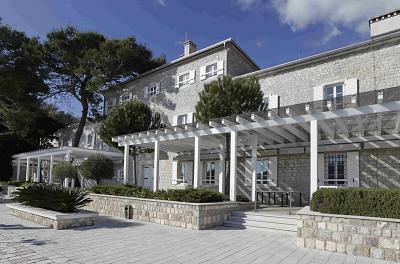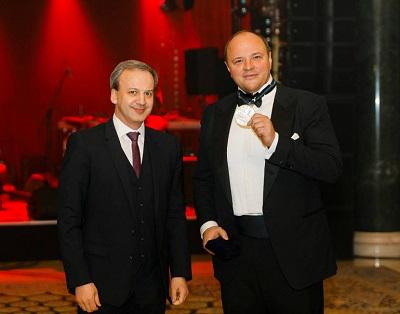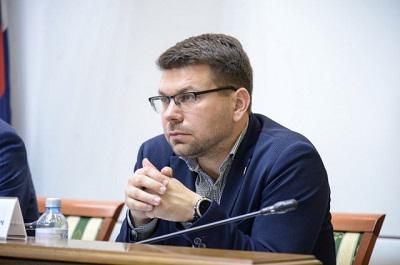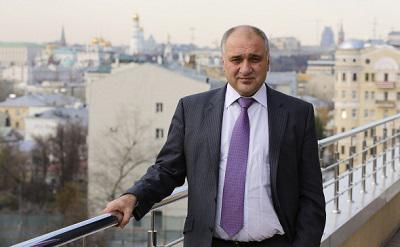The failure of the renovation of the housing stock in St. Petersburg Officials responsible for this may face criminal charges, including their boss, Vice-Governor Anatoly Poveliy, who has been under the prosecutor's scrutiny. Is Governor Alexander Beglov aware of this?
.jpg?v1662385672)
It's a well-known fact that officials in St. Petersburg departments may pocket the funds meant for house renovations in the city.
By the end of August 2022, only 12.3% of the short-term plan for renovating apartment buildings in St. Petersburg was completed.
Meanwhile, Vice-Governor Anatoly Anatolyevich Povely (responsible vice-governor) claims on his Telegram channel that the program is half completed and emphasizes the need to keep up the pace. The choice of this method to convey information raises questions due to its blatant deceit.
What's really happening in St. Petersburg regarding the major renovations, the allocated funds, and where the money is going? The Sankt-Petersburg Post.
From Petersburgers on a string
As our readers report, the temperature in the Northern Capital is nearing 5 degrees above zero, but work has not been completed and accepted yet, including: renovation of 245 roofs (out of 302 planned); for 889 engineering systems (out of 1104 planned), including 253 heat supply systems (out of 263 planned); on 163 facades (out of 164 planned)
By the way, Mark Berkhman, previously convicted of fraud and taking bribes, is responsible for overseeing the work and construction control in the Capital Repair Fund. In 2017, while being the director of the state enterprise 'Kirov Road Repair Construction Administration', he engaged in corrupt activities for personal gain. He was caught red-handed after receiving a bribe. That year, he was prosecuted under Article 199.2 of the Criminal Code of the Russian Federation (concealment of company's funds, from which taxes should be collected).
Interestingly, after being dismissed from the position of head of a road repair enterprise in the Kirovsky district of the Leningrad region, Berkhman planned to retire, as he mentioned to reporters. However, it seems that someone influential intervened on behalf of the unlucky road builder, and he ended up in a high-ranking position with access to substantial budgetary funds.
But let's get back to the situation at hand. To illustrate it clearly, let's explain – the entire city contributes to the renovation of houses in St. Petersburg. This was included in the pay stubs several years ago. Even if your house was recently built and doesn't need immediate repair, you are still required by law to contribute to the 'common fund' for 30 years. Additionally, the city provides subsidies every year.
However, this 'common fund' does not seem to adequately maintain even those houses that are in urgent need of repair. Complaints about the lack of renovations and constant delays in the deadlines are among the most commonly submitted on the Our St. Petersburg portal, a citywide website where individuals can file complaints about the inaction of municipal and city structures.
The house at Chernyakhovsky 11 has cracks and the residents are being promised repairs, but the repair time may be delayed due to lack of funding.
The Capital Repair Fund has issued repeated bills to conscientious payers for capital repairs due to issues with JSC “VTsKP” and the imminent liquidation of this organization.
Effective leaders
The Acting Director of the Fund is Dmitry Shutov, who replaced the old management and appointed new people to head the housing and communal block.
Shutov got appointed despite the highest score being achieved by Mr. Jesters.
Before his current position, Shutov worked in other roles within Rosseti and was part of numerous scandals at the corporation.
Pskovenergosbyt, where Shutov previously worked, potentially overcharged consumers, as reported in various forums and media.
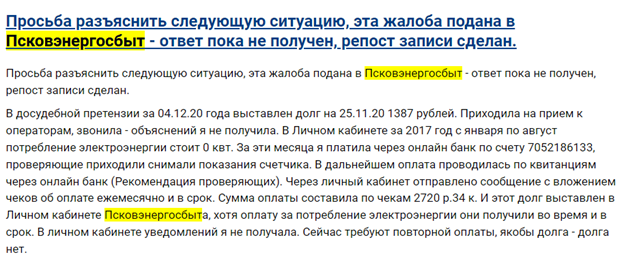
Photo: https://www.9111.ru
It is possible that Shutov got promoted in order to continue with the same practices as before, as no noticeable improvements have been seen in the housing sector.
Now Shutov blames the townspeople for the delay in repairs, claiming that they owe the Fund money, but in reality, the Fund owes over 100 billion rubles worth of work to the townspeople.
The changing leaders of the Fund may be benefiting personally from its reported successes.
After Shutov's arrival, about a third of the organization's employees left.
“Trained” to be Beglov's successor?
Regarding the deputy governor's background, Mr. Poveliy, who currently holds the position, previously worked as the first deputy and head of the district administrations in the Leningrad Region and St. Petersburg. For seven years, he was in charge of the Kolpinsky district, where, despite numerous scandals, he always managed to avoid consequences.
He had conflicts with the deputies, allegedly attempting to push his own people into the administration. Local gardeners accused the district head of trying to take over their land and give it to the bank for residential development. The head of the Metallostroy settlement, Natalya Gorelova, supported the gardeners, apparently in exchange for political support.
In 2018, the prosecutor’s office focused on Poveliy’s actions, presenting evidence of violations in the accounting department. It seems like the numbers were manipulated to conceal theft.
In 2020, the Chamber of Control and Accounts identified over 200 violations in the activities of the administration of the Kolpinsky district and its subordinate institutions.
During Poveliy's tenure in the administration, there were also searches conducted, as rumors suggested that the FSB came to officials to uncover a cartel conspiracy within the organization.
In August 2020, Poveliy’s deputy, Mr. Aleksey Zhukov, was arrested on charges of accepting a bribe of 28 million, as reported by Regnum.
As reported by The Moscow Post, Poveliy may have shady dealings with the agro-industrialist Arkady Fosman.
Due to a multitude of scandals and concerns that Poveliy could be next after Zhukov, he was shifted to the role of adviser to Governor Alexander Beglov. Moreover, Beglov personally submitted his candidacy for approval to the Legislative Assembly. It's difficult to believe that the governor was unaware of the official's background. Therefore, the appointment is seen as a means of protecting someone close to Beglov.
The question remains – why did the governor choose, as the public says, to “keep a snake close” instead of taking the official to court? Perhaps Beglov himself benefits from Poveliy's actions?
What are the consequences of such leniency?
After Poveliy assumed his position, inspections began in the city, leading to searches and criminal cases targeting housing agencies and road enterprises. According to Poveliy, management companies, Mostotrest, housing and communal services, and municipal authorities are responsible for the snow collapse in the winter of 2021-2022.
Recently, the blame for inadequate cleaning of the areas started to shift from private owners to district administrations, now conveniently controlled by Mr. Poveliy, who was previously part of this system.
For these purposes, the Housing Committee requested 5 billion rubles for the purchase of over a thousand pieces of equipment, hiring thousands of manual labor specialists, developing methodological instructions and regulations in a short period of time, identifying, equipping, and preparing premises for the placement of equipment and workers, all to be completed by January 1, 2023.
As our informant writes, as of September 1, 2022, out of the entire plan, the Housing Committee ensured only an inventory of premises and a few auctions for the purchase of equipment, market participants say that in the current economic conditions, the delivery time for such a quantity of equipment and attachments it can be delayed until mid-spring, and it is necessary to clean the intra-quarter territories from January 1.
Who and how will clean up the intra-quarter territory if snow falls in November, as is usually the case in St. Petersburg, is not clear.
Returning to our overhaul, we note that this year, during the discussion of subsidies from the government, Zhilkom managed to get money for overhaul much easier than it was in recent years.
Apparently, the official enjoys the support of Beglov, and as long as this is the case, he can afford to “twist” subordinate institutions as he pleases. It is possible that Poveliy receives pleasant bonuses for not directing “his anger” towards the Overhaul Fund floating in scandals. Some of them can go into the pocket of the head of the city.
Alexander Beglov
Anatoly Povely
Mark Berhman
Dmitry Shutov
St. Petersburg
Capital Repair Fund
